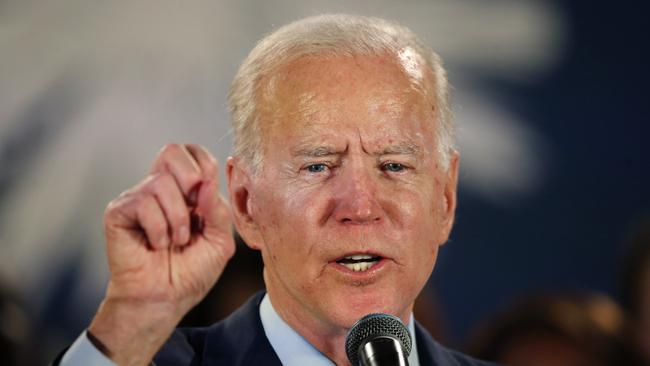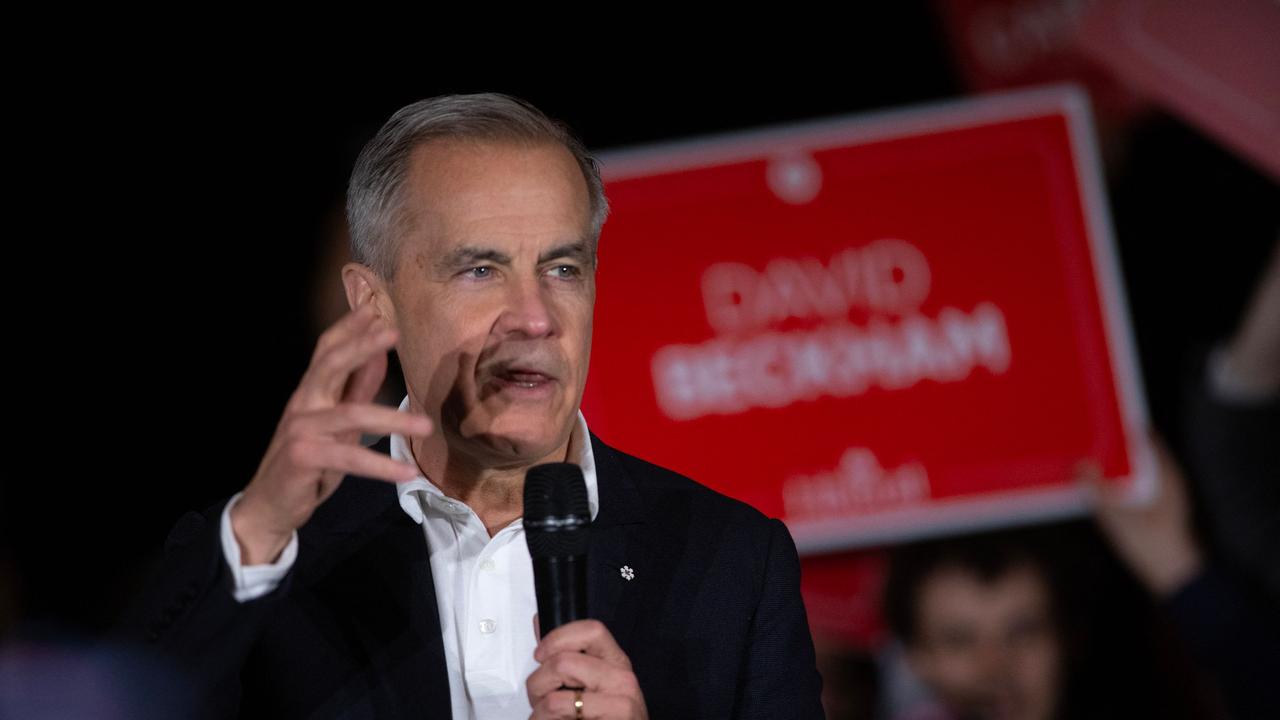Joe Biden’s campaign heads south, in more ways than one
Joe Biden, once the frontrunner for the Democratic nomination, is fighting to invigorate his party’s effort to oust President Donald Trump.

Joe Biden, once the confident frontrunner for the Democratic nomination, is fighting to invigorate his party’s effort to oust President Donald Trump and reclaim the White House.
But America’s centrist senior statesman, the one who insists he has the best chance at defeating Trump in November, has seen his political fortunes plunge in a single week.
After what he called a “gut punch” of a fourth-place finish in the opening contest in Iowa last week, he faced a second straight drubbing in New Hampshire, a shock fifth-place finish.
The former vice-president saw the writing on the wall and abruptly scrapped plans to spend primary night in New Hampshire, jetting to his stronghold of South Carolina, where a diverse Democratic electorate votes later this month.
“I know this is going to be the fight of my life,” Biden told about 200 supporters gathered near the South Carolina capital of Columbia to hear him deliver an emotional appeal.
Biden is eagerly looking ahead as the nomination fight moves beyond the overwhelmingly white opening states to Nevada, South Carolina and a Super Tuesday slate next month where African-Americans and Latinos will hold considerable sway.
The candidate argued that no Democratic nominee has succeeded without significant support from African-Americans, the core of his base in a fractured primary field. The electorate in South Carolina’s primary on February 29, the first in the south, is expected to be more than 60 per cent black and could approach 70 per cent, according to state party leaders.
Still, no Democrat has claimed the nomination in the modern primary system without winning either Iowa or New Hampshire.
Biden’s campaign had said for months it didn’t have to win either state, but that strategy didn’t necessarily consider finishing so far off the pace. In recent days, Biden’s donor base has grown nervous, raising questions about his financial viability if he doesn’t rebound quickly.
When he flew out of New Hampshire on Tuesday, Biden ended an eight-day whirlwind that saw him go from a national frontrunner for the nomination to a battered underdog.
He finished fourth in Iowa last week and fifth in New Hampshire.
While praising Iowa’s and New Hampshire’s opening roles in the nomination race, Biden argued that 99.9 per cent of African-Americans and 99.8 per cent of Latinos had not yet had the opportunity to cast Democratic primary ballots.
“Do not let anyone take this election away from you,” he said in a speech that touted his deep political ties to South Carolina and to the black community.
He mentioned his relationship with South Carolina’s lone Democratic congressman, Jim Clyburn, the highest-ranking black politician on Capitol Hill. He noted his service as president Barack Obama’s top lieutenant. He recalled meeting South African leader Nelson Mandela. And he promised black Americans a seat at the table in the Oval Office.
“Too often your loyalty, your commitment, your support for this party has been taken for granted,” he said. “I give you my word as a Biden that I never, ever, ever will.”
Biden was introduced by his campaign co-chairman, Cedric Richmond, a Louisiana congressman and former chairman of the Congressional Black Caucus. Richmond recalled for the crowd the first question he asked himself when deciding who to support: “Who do I trust?”
South Carolina has been a springboard for the nominee before. Four years ago, Hillary Clinton and Bernie Sanders battled to a draw in Iowa and Sanders beat her in New Hampshire, prompting a round of hand-wringing from some party leaders and national media. Clinton went on to crush Sanders in South Carolina and the diverse states that immediately followed, building a delegate lead he could never overcome.
Eight years earlier, it was Obama, the nation’s first black president, who used the black vote to put distance between his campaign and Clinton.
This isn’t a two-person race, though, and Biden is looking merely to return to contender status. But 2020 has proven unusual already, with no candidate having demonstrated the ability to build a broad coalition across the party’s racial, ethnic and ideological factions.
Sanders and Pete Buttigieg achieved a split decision in Iowa and beat other runners in New Hampshire.
Sanders, a Vermont senator and democratic socialist, has paltry support among the party’s establishment core, and for months he has trailed Biden in support among non-white Democrats. Buttigieg, a former Indiana mayor, has struggled to corral meaningful support from black or Latino voters. The same is true for Minnesota senator Amy Klobuchar.
Biden does have competition for the black vote in South Carolina. Billionaire businessman Tom Steyer has spent large sums on advertising, while Biden’s financial struggles have left him largely absent from the state’s airwaves.
And there is more competition to come, with Michael Bloomberg due to enter the race on Super Tuesday, March 3, when 14 states will vote. The media billionaire and former New York mayor entered too late to qualify for New Hampshire but has already reached as high as third in some national opinion polls.
The apparent collapse of Biden’s campaign and the indecision of centrist Democrats over which moderate to back could open the door to Bloomberg, who turns 78 on Friday, setting up what some foresee as a long battle with Sanders all the way to the party’s convention in July.
A new Monmouth poll has placed Sanders in a significant lead in a national poll, on 26 per cent, up three points on a month ago. He was ahead of Biden on 16 per cent, down 14 points, and both Buttigieg and Elizabeth Warren on 13 per cent. Bloomberg was next on 11 per cent.
AP, The Times



To join the conversation, please log in. Don't have an account? Register
Join the conversation, you are commenting as Logout